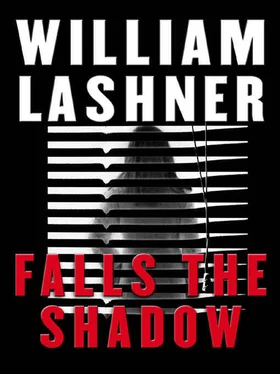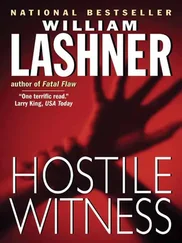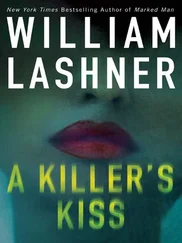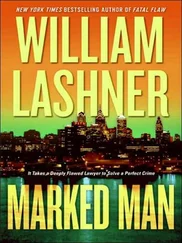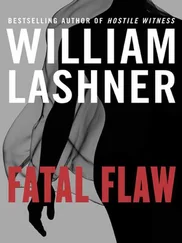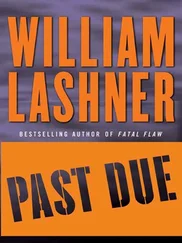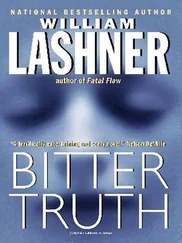“I know the evidence, Ms. Dalton. I sat through the trial, remember? The standard is whether the impeachment information could reasonably be taken, in light of the whole case, to undermine confidence in the jury’s verdict, and I believe Ms. Derringer on that point is persuasive.”
“We respectfully disagree,” said Dalton, standing straight, if not tall, at the prosecution’s table. Mia Dalton, all five foot one of her, was a hard woman in a tough spot. The François Dubé case had not been hers when it was originally tried, but the prosecutor who had handled it was now the elected district attorney, and so Dalton was saddled with the burden of defending her boss’s handiwork. “Even without Seamus Dent’s testimony, the prosecution would have no trouble proving guilt beyond a reasonable doubt.”
“Well, Ms. Dalton, you may have the chance to show us. I think my responsibility here is clear. The impeachment information was both material and in the hands of the police at the time of the trial and therefore was required to be handed over to the defense.”
“But it was not in the hands of the prosecution, Judge.” Dalton turned and glared at Patrick Gleason, who was sitting behind her in the courtroom. “Detective Gleason failed to inform the acting detective, Detective Torricelli, or the prosecutors of what he knew of Seamus Dent’s past. How can we be held responsible for Detective Gleason’s failure?”
“I’m not saying your office did anything wrong here, Ms. Dalton. Like I tell my daughter over and over, it’s not all about you. We’re talking François Dubé’s constitutional rights.”
“What about the rights of Leesa Dubé not to be shot in the neck?”
“Are you being argumentative, Ms. Dalton?”
“Being as this is argument-”
“The Court in Brady says it doesn’t matter if the prosecution’s failure to turn over impeachment information was intentional. And in Kyles v. Whitley the Court reaffirmed that the prosecution has a duty to learn of any favorable evidence known to others acting on the government’s behalf, including the police.”
“That puts too high a burden on our office.”
“No, it doesn’t, Judge,” said Beth, standing now and entering the fray.
“Any other rule would allow the police, not the prosecutor or the courts, to make the determination of what evidence should be turned over to the defense. Which, I might add, is exactly what happened here.”
“Absolutely right, Ms. Derringer,” said the judge.
Dalton glanced over at Beth with something close to admiration in her eyes and then down at me. As I grinned at her as best I could, she puffed out one cheek, aping my swollen jaw. Sweet.
As the argument continued, I turned to take in the rest of the courtroom crowd. A few reporters, a few bored lawyers looking for some entertainment, and then those with a more direct connection to the case. There was an angry claque sitting together on the prosecution’s side of the courtroom, leaning on one another, offering support. In the middle, stone-faced, sat an older couple, both looking like they were trying hard not to burst a vein. It is a common sight in a murder case, the victim’s family and friends putting on a show of support for the dear departed. The older couple were Leesa Dubé’s parents, guardians now of Leesa and François Dubé’s four-year-old daughter, who was not in the courtroom. I smiled at them, they studiously avoided looking back.
Detective Gleason was sitting up front, taking his medicine with a mournful, startled expression. Things would not be going well for the detective; two Internal Affairs officers had been in the courtroom during his testimony, taking notes. But to the detective’s credit, he didn’t hem and haw up there on the stand as Beth questioned him about Seamus Dent. He swore his oath to tell the truth and then followed it like a path to redemption, a rarer event in the criminal courts than you would imagine. I also couldn’t help noticing that his southern drawl was replaced with a flat Philadelphia accent, as if the Elvis had been knocked out of him by the troubles I had brought down upon his head. Which was a shame, I thought, because if ever he needed a little Elvis in his life it would be over the next few months.
Behind our table Whitney Robinson nodded at me, something wary in his eyes. Beth had also wanted to argue ineffective assistance, and Whit would have gone along, testifying to all his mistakes in the first trial if we had asked him. But I convinced her against it, partly because it would dull our argument that the failures were the government’s fault and partly because I didn’t want to tarnish Whit’s legacy. He deserved better, I figured.
And then in the back, arms crossed, luscious lips pursed, sat Velma Takahashi in a smashing turquoise suit. I was surprised to see her, actually, but there she was, making sure she was getting value for her cash retainer, no doubt. She was looking pretty good, was Velma, she was money, all right, and we would have to have another chat soon. Maybe as soon as the judge ruled.
“As I stated before,” said the judge, scratching now his scalp as if to scratch up an answer, “I am concerned, very concerned. I remain horrified at the depravity of this crime and am aware of the importance of finality of judgment. At the same time, I am duty bound to follow the dictates of the Constitution.”
“Can I say something, Judge?” said François Dubé, standing as he spoke. It was the first time he had said anything at the proceeding, and to hear his reedy French voice in the courtroom was jarring.
This was not good, this could only hurt his cause. I grabbed at Beth and shook my head. Beth leaned over and said something into his ear. He gently pushed her away.
“Judge,” he said, “can I please say something?”
“You are entitled to your say, Mr. Dubé, but it looks like your counsel is trying to prevent you from speaking, and I recommend you listen to your counsel.”
“No one today has said anything about whether I did or didn’t do what I am accused of.”
“Convicted of,” said Dalton.
“I want you to know, Judge,” said François before he turned to face the angry claque on the other side of the courtroom, “and I want Leesa’s parents, Mr. and Mrs. Cullen, to know that I did not kill Leesa. I loved Leesa. We were having our problems, yes, but I loved her, and I always will.”
The old woman in the middle, her face set, her jaw clenching as if she were cracking chestnuts, said in a low voice, “Sit down. God, do us all the favor and just sit down and shut your mouth.”
“Quiet now, everyone,” said the judge. “Your protestations of innocence have no effect on the matter currently before me, Mr. Dubé. You made the same protestations at your trial, and they were not believed by the jury.”
“But I didn’t do this,” said François Dubé. “I’m an innocent man. And ma mère, papa, ” he said, facing again the Cullens who were swearing at him with their eyes. His use of the familiar paternal and maternal forms of address brought a gasp from the courtroom. “I want to see my daughter. Please let me see my Amber. Please.”
At that moment, Mrs. Cullen stood, swallowed a sob, and quickly slid past the other people in her bench before rushing out of the courtroom. One of the younger women in the claque stood, glared at François, and then followed her out. Mr. Cullen continued staring with a hatred that could have smashed boulders.
François turned back to the judge. “That’s all I have to say.”
“I think that was quite enough,” said the judge, with a bite of anger in his voice. “Now, sit down, and not another word. The Cullens have endured a great tragedy. There is nothing you can do to assuage their pain, Mr. Dubé, but I won’t let you make it any worse.”
Читать дальше
